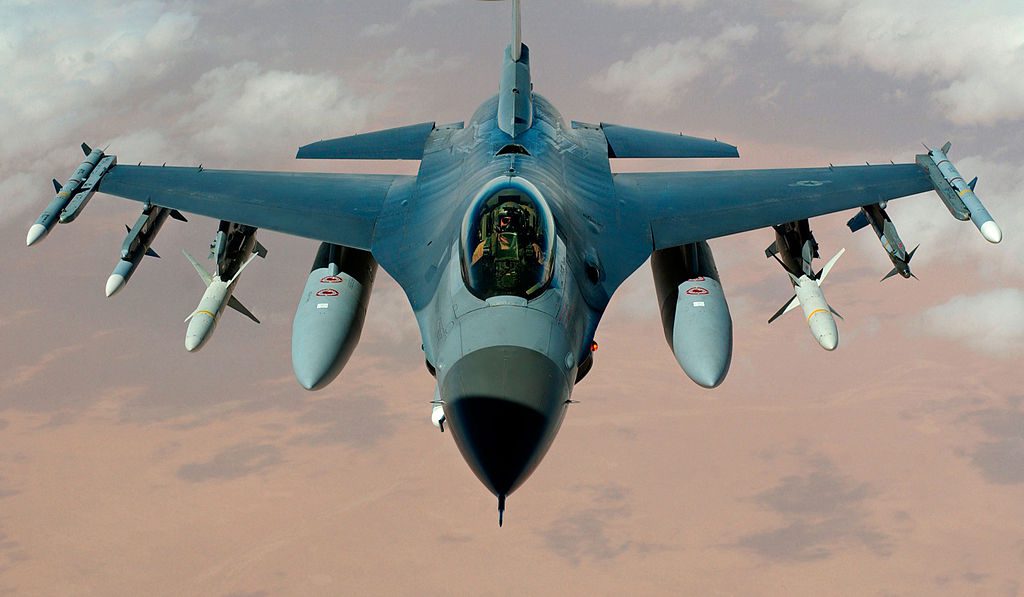Emma Soubrier is a Visiting Scholar at the Arab Gulf States Institute in Washington (Washington, DC) and an Associate Researcher at the Centre Michel de l’Hospital, Université Clermont Auvergne (UCA, France). Her research in International Relations, Security Studies, Arms Trade, Political Science and Political Economy focuses on the Middle East, particularly the Gulf region. Through an analysis of evolving foreign and defense policies as well as procurement strategies of the countries of the Arabian Peninsula, Emma assesses the shifting power dynamics between global arms suppliers and client states – and between stakeholders within producing countries, as a result of increasing blurred lines between the political, economic, and strategic dimensions of the arms trade.
This interview is the final in a series highlighting the research team for the Defense Industries, Foreign Policy and Armed Conflict project. You can view the previous interview with Jennifer Erickson here.
WPF’s Aaron Steinberg corresponded with Emma Soubrier over email to learn more about her involvement with the project.
Aaron Steinberg: What was the focus of your previous research?
Emma Soubrier: My research in the past few years has focused on the defense policies and arms procurement strategies of the Gulf Arab states, more particularly the United Arab Emirates (UAE) and Qatar. I conducted a comparative study of the way their military international relations and weapons purchases evolved since the beginning of the 1990s. The idea was to explore how and why these two small states became so influential on the regional and international stage, what impact their growing assertiveness and power has had on dynamics between them and their main Western partners (particularly the United States, France, and the United Kingdom), and why they adopted such different foreign and security policies while being confronted with apparently similar external and internal challenges. Crucially, this investigation has led me to posit that the Gulf states, building on the shifting dynamics of the global arms trade, have been increasingly willing to utilize it as a tool of reverse influence on their traditional Western suppliers and security guarantors. Now, this newfound leverage does not only affect what these exporters are willing to sell them but may also affect their foreign policies in the region. Consequently, this raises broader questions about the definition and allocation of power in contemporary international relations.
AS: What questions do you want to engage with through the current project with WPF?
ES: One question that I am very interested in engaging in is how the aforementioned dynamics are perceived in France, the risk assessment that is made about them, and what is already identified, if at all, as future challenges pertaining to this possible shift in (economic, political, strategic) dependency logics with the Gulf states. I would particularly love to get a better, comprehensive understanding of how stakeholders involved in arms exports decision-making processes weigh different aspects of the national interest and their relative importance. Mapping out the networks of state and corporate actors involved in these, both inside and outside the country, will be an important part of the project. It will not only allow me to have a clearer view of how and why issues are assessed and prioritized the way they have been, from the perspective of the patron/supplying state, but also to identify avenues for improvement.
AS: Are there specific events or policies that have spurred the growth of the arms trade in recent years?
ES: In the Middle East, accounting for an average 35% of international arms transfers over the period 2015-19, the events associated with the “Arab Spring” have spurred a surge in weapons purchases. The cases of Saudi Arabia, Egypt, and Qatar are particularly important, with the most dramatic increase in their arms imports being respectively linked to the beginning of the Yemen War (2015), the military coup by General al-Sissi (2013) and the diplomatic crisis within the Gulf Cooperation Council (2017). Interestingly, while the UAE remains a key importer (8th largest in 2015-19), its share of the world’s total tends to decrease, which can be explained by evolving strategies I have explored these past few years. On the suppliers’ side, there might also have been an aggressive push for exports pertaining to shrinking national defense budgets and lesser opportunities on domestic markets in their home countries.
AS: How might we disentangle various interests of corporate actors and foreign policy priorities?
ES: I am not convinced that it is helpful to see these as inherently different and/or needing disentanglement because it often leads to a false dichotomy between virtuous actors trying to implement foreign policy objectives based of core national values and “bad – corporate – guys” that are only in it for the money, when the lines are much more blurry between the interests of all these stakeholders. It is thus crucial to leave any normative approach aside and to get to the bottom of the perceived added value of arms trade (from an economic, political, and strategic perspective) from the standpoint of all these actors understood as part of a same system. This could in turn open the door to think about innovative solutions to meet these multifaceted interests in a more balanced way (assuming, as I do, that the findings of the project will point to a gap between the perceived and real interests that are currently fulfilled by arms trade).
AS: What changes would you like to see and where do you think change in the current structure of the arms trade is possible?
ES: I would like major shareholders of the global arms market to realize or own up to the fact that they have much more agency that they seem to believe or pretend they have. What I am alluding to here is that some frequent arguments such as “others will do it if we don’t”, or “we will suffer major blowbacks if we change anything” are not compelling, for instance. This also applies to the multiple actors in charge of arms control processes within exporting countries, who wrongly seem to assume they do not have the power to flip the script on arms trade and/or open a much-needed conversation about the best way to safeguard all interests at stake. Eventually, I would like all parties entrenched in this complex system to see change in the current structure of the arms trade and/or prioritization of security challenges and ways to address them as a good thing for everyone. To be sure, if 2020 is teaching us anything, it is that these major arms are pretty useless to address the real tests the future holds for our countries and for humanity as a whole. It might be time to do something about that, starting with a comprehensive debate about what national security means, and how we can truly protect it.


